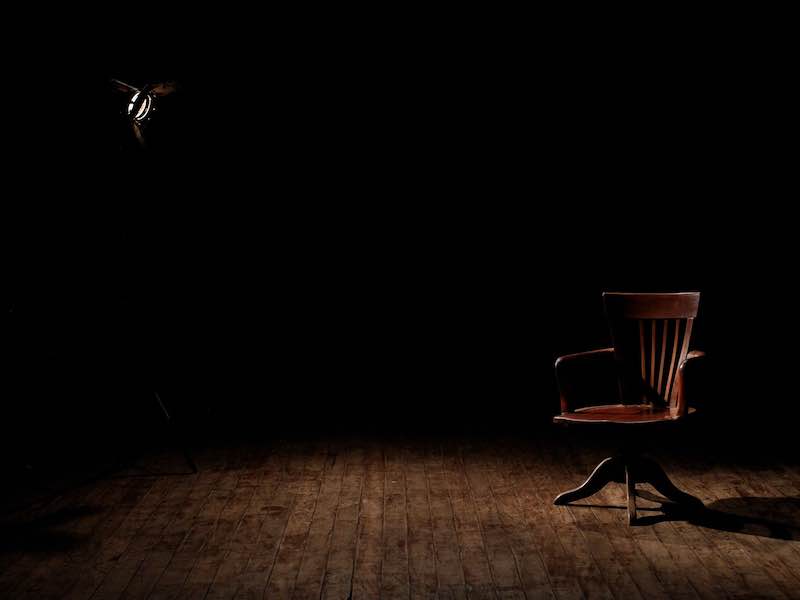A Director’s Liability: The Consequences of Turning a Blind Eye to the Wrongdoings of Others.
by Lavinia Kumaraendran & Yap Sher Min ~ 28 May 2020


Lavinia Kumaraendran (Partner)
Tel: 603-6201 5678 / Fax: 603-6203 5678
Email: lkk@thomasphilip.com.my
Website: www.thomasphilip.com.my

Yap Sher Min (Associate)
Tel: 603-6201 5678 / Fax: 603-6203 5678
Email: ysm@thomasphilip.com.my
Website: www.thomasphilip.com.my
“Shut Your Eyes to the Bad and Spin the Big Chair,
Will You Come Out Unscathed?”
If that chair you are sitting in is not just an ordinary big chair and is instead a chair where you are seated as a director in a company, the answer to that would be – No.
Being a director will undoubtedly put you in a position where you will owe wide general duties to your company. Surprisingly, such duties would even include the need of having to disclose of the wrongdoings of others towards the company in which you were aware of, in other words, a director will not be able to feign ignorance or turn a blind eye to the wrongdoings being conducted against the company. Where in the event a director is found to have done so, they may be found liable for being ‘willfully blind’ to such misconducts as they have a duty to act in good faith and in the best interests of the company.
This article will provide an explanation as to the concept of ‘willful blindness’, to whom it shall apply to as well as to how you may escape such liabilities as a director who has been suspected for being willfully blind.
HOWEVER, BEFORE WE MOVE ON, NOTE THAT: ‘Willful blindness’ is entirely different to where a director has purposely ‘dishonestly assisted’ a third party or another director in causing harm or damage to the company in which shall be addressed in another article in the near future.
‘Willful Blindness’ – The necessary Knowledge
It is pertinent that for a director to be held liable for ‘willful blindness’, he would have first need the necessary ‘knowledge’ of such wrongdoings in the first place. ‘Knowledge’ referred to here is ‘actual knowledge’ of the wrongdoings that were happening (The United Kingdom decision in Belmont Finance Corpn Ltd v Williams Furniture Ltd [1979] Ch 250).
Actual Knowledge is where a person would be deemed to have actual knowledge to the wrongdoing if they had willfully shut their eyes to dishonesty, or willfully or recklessly fails to make such inquiries as an honest and reasonable man would make in hopes of being able to deny of such wrongdoings (The United Kingdom Chancery Division case of Baden, Delvausx and Lecuit v Societe Generale pour Favriser le Developpement du Commerce et de l’Industrie en France SA [1983] BCLC 325).
Real-time Situation Examples (but not limited to):
- If a director has discovered that there were questionable monies suddenly deposited into their bank account, they must be vigilant and take steps to ensure that such sums received were not proceeds of any unlawful activity and that he knows that such monies is lawful. Failing to do so may lead them to be liable for being willfully blind.
- Where a director has approved a suspicious company transaction where in the view of an honest and reasonable person would have conducted further investigations of such transaction may cause them to be willfully blind to their duties.
- If a board meeting was not properly constituted but the director was aware on the facts which made it obvious that the board meeting may not have been properly notified, the director would be found to have actual knowledge in such circumstances. As such, they would have a duty to put forward an inquiry as to such irregularity and failing to do so will make them liable for being willfully blind to their duties.
Long story short, where a director truly does not have any actual knowledge of the wrongdoings and is found to be truly innocent, they would not be found to be held liable for being ‘willfully blind’ to the wrongdoings of others conducted towards the company. However, if they knew of such wrongdoings and had decided to keep silent, they would be taken to have authorized such wrongdoings and thus be held liable and would be unable to raise the defence that they had no knowledge of it.
Can a Non-Executive Directive be Liable for Willful Blindness?
As many would know that non-executive directors are independent directors who are members of the board of directors of a company but are not part of the executive management team. Hence, would they also be held liable if they have found that such wrongdoings had been conducted upon the company and had turned a blind eye to the same?
It was decided in the United Kingdom Chancery Division case of Secretary of State for Business, Innovation and Skills v Akbar [2017] EWHC 2856 that non-executive directors are found to have the same duties and responsibilities as executive directors. As non-executive directors, they would have an obligation to keep themselves informed as to how the company is being run and to challenge the executive directors of their decisions. Hence, where if the non-executive director has turned a blind eye towards such duties, they would not have any defence in any claim for their breach of duty.
The Malaysian High Court decision in Ravichantiran Ganesan v Percetakan Wawasan Maju Sdn Bhd & Ors [2008] 8 MLJ 450 held that:
“Even if the plaintiff was a non executive director, his roles and duties were still governed by the Companies Act 1965, in particular s. 132. As a non executive director he was entrusted to look after the affairs of the company and to keep a close watch on the company’s managers and other directors in order to safeguard the investment of shareholders”.
What About Sleeping / Silent Directors?
Such liability would also apply to sleeping partners / directors or a silent director as well who are alter egos of a company. This is clearly because upon accepting their appointment as a director of a company, under the law they would be deemed to have understood their duties and agreed to discharge the same accordingly. Thus, they would be unable to escape culpability by pleading that they were holding of such position and had closed their eyes to the wrongdoings made towards the company (the decision of Kamalanathan Ratnam J in the Malaysian High Court case of Lembaga Kumpulan Wang Simpanan Pekerja v. Adorna RMIT Sdn Bhd & 9 0rs [2003] 4 MLJ 729).
Proving Willful Blindness in the Commercial Context
The burden of proof lies on the accuser to prove that the person accused had turned a blind eye to the wrongdoings of others towards the company (The Hong Kong Court of First Instance decision in Totalcorp (Nominees) Ltd v Hong Kong Sai Kung Ngong Wo Resort Development Ltd [2020] HKCU 504).
Once the director has been found to have been willfully blind to the misconducts, they would then have to find a way to prove that such misconducts were done on a legitimate basis (The Hong Kong High Court decision in Yjk Company Limited, Yjk (Far East) Limited v Kazuo Aizawa, Yoshiaki Nishikata, Sieta Company Limited, Masako Nakamura, Yutaka Ezure and Hideki Yamada [1999] HKCU 1374).
The Position of Willful Blindness in Malaysia
It is, however, important to know that the director’s liability of ‘willful blindness’ is still a very new and developing area of law within Malaysia as well in other Commonwealth jurisdictions. As such, there may still be a lot of uncertainties as to the full extent of its application.